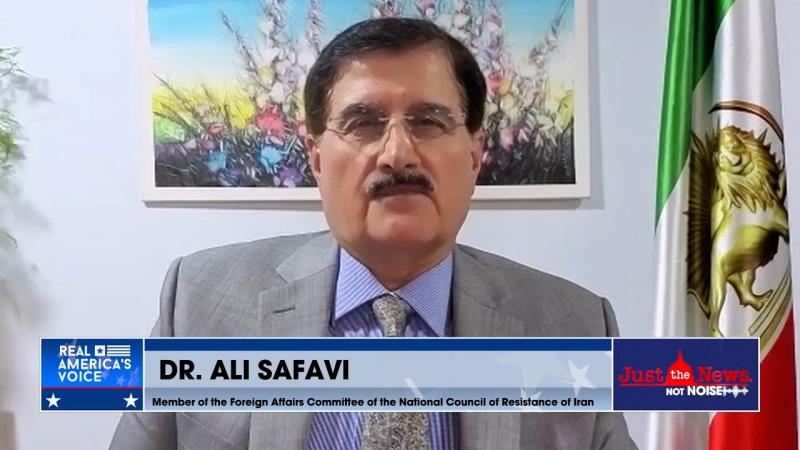UN-backed Gaza City famine determination may be flawed by reliance on incomplete data
The Whole World is Watching: The famine determination approved by the U.N. comes at a fraught time for Israel as American approval of Israel declines to its lowest levels since fighting began.
The United Nations-backed organization that declared a famine in the Gaza Governorate appeared to have relied on incomplete data that is key to making its assessment of the effects of Israel’s ongoing war against the Hamas terrorist group in the enclave.
The Integrated Food Security Phase Classification (IPC) issued a declaration at the end of July warning that the “worst-case scenario of famine is currently playing out in the Gaza Strip” and called for an immediate ceasefire as a means to end it.
“Mounting evidence shows that widespread starvation, malnutrition, and disease are driving a rise in hunger-related deaths,” the IPC wrote in an alert. “Latest data indicates that famine thresholds have been reached for food consumption in most of the Gaza Strip and for acute malnutrition in Gaza City.”
Defining "famine" based on survey
While the world is bombarded with heart-wrenching images -- many of them fake or staged -- of starving children, a review of the data shows that the IPC appears to have relied on incomplete survey results for the month of July to make its claim that Global Acute Malnutrition—a key data point used to assess famine conditions—had exceeded a necessary 15% threshold to declare the conditions in the main region of Gaza to be a famine.
Nevertheless, the organization’s conclusions spread throughout western media at a time when Israel’s reputation in the western world, especially in America, is taking a hit amid its ongoing military operations in Gaza. The IPC’s Famine Review Committee, which released its report on July 29, 2025, assessed that a famine was taking place in the Gaza Governorate of the Gaza Strip, and assessed that other regions were also in danger of reaching famine levels.
The committee analyzed data compiled by Nutrition Cluster, which is led by UNICEF, and relied on various data collected throughout the Gaza Strip by medical and aid groups. Those groups used Mid-Upper Arm Circumference (MUAC) measurements to screen for signs of malnutrition. According to industry definitions, if MUAC measurements indicate acute malnutrition in 15% or more of the population, a famine can be declared by authorities.
Israel and its supporters say survey was flawed in a key factor
The data seemed definitive. According to measurements collected by the IPC, Global Acute Malnutrition among the population of the Gaza Governorate, home to the region’s largest city, had ballooned from around 10% to just over 16%—surpassing the requirement to declare a famine.
The Israeli government rebuked the report and its findings, noting that the UN-backed organization only used half of the data collected during the month of July to draw its conclusions. “Famine classifications are meant to be exceptional, invoked only when mortality and malnutrition rates clearly and indisputably exceed the most extreme thresholds,” the Israel National Digital Agency said in a statement.
“In Gaza City, however, the declaration was issued not only without evidence that would justify it under the IPC’s own criteria, but also on the basis of partial or misrepresented data — most prominently an alleged breach of the acute malnutrition threshold presented as key justification,” the Israelis wrote.
IPC report discounted half of the reported data
Indeed, the IPC report only included a fraction of the health data collected by Nutrition Cluster for the month of July. The IPC relied on a sample of 7,519 subjects in the Gaza Governorate to calculate the malnutrition rates. That data is tabulated in an appendix to the report, arranged by the different sources from which Nutrition Cluster compiled the measurements.
However, in early August, Nutrition Cluster published the full health data from the Gaza Governorate in July, which showed a sample size of 15,749 subjects. The complete data for the month painted a different picture. An analysis of the MUAC measurements shows that both the weighted and unweighted measurements of acute malnutrition in the province were estimated to be at 12.2% and 13.5% respectively, both under the 15% threshold to declare a famine.
“In short: the IPC ignored the complete July data, which placed Gaza City well below the threshold, and instead relied on its partial dataset, misrepresented to suggest an upward trend. This distortion of malnutrition data propped up the famine designation — a designation that would have collapsed had the IPC acknowledged the complete July results,” the Israeli government said.
The IPC did not respond to a request for comment from Just the News about the discrepancy.
Any failure by the IPC to completely and neutrally assess famine conditions, especially in a warzone, is fraught with difficulty for Israel. Approval among Americans for Israel’s ongoing operations in Gaza has reached an all-time low for the country’s closest ally. A recent Gallup poll reported that only 32% of Americans support Israel's military operations in Gaza.
The IPC, which is backed by a partnership of western governments and the United Nations (and the U.S. Agency for International Development until 2025), is relied upon for accurate and neutral assessments.
On Wednesday, Israel formally requested the IPC retract its determination.
Questionable changes of metrics in data analysis
After the July report was published, the IPC also faced criticism for allegedly changing one of its key reporting metrics in order to make it easier to declare a famine in Gaza.
The Washington Free Beacon, for example, reported that the MUAC measurement is “not historically used” to support a famine declaration. Additionally, the outlet reported that the IPC used “a lowered threshold for the proportion of children who must be considered malnourished for the IPC to declare a famine, down to 15 percent from 30 percent.”
However, the IPC notes in its official technical manual, which was last updated in 2021, that the threshold to declare a famine is different depending on which metric is used to assess malnutrition. For MUAC measurements, the body identified 15% as the major threshold.
“[The] statement that the IPC changed its protocols is completely false,” the IPC told The Jewish Chronicle in response to the reporting. “The MUAC metric has been accepted for famine classification since 2019, when the IPC Technical Manual Version 3.0 was released. This is also outlined in the current IPC Technical Manual v3.1, which explicitly allows acute malnutrition to be measured using at least three outcome indicators: Weight-for-Height Z-score (WHZ), Mid-Upper Arm Circumference (MUAC), or Body Mass Index (BMI),” the IPC said.
"Since these indicators measure relatively different dimensions, their thresholds are all different,” the group explained. This is consistent with past famine determinations in South Sudan in both 2020 and 2024, when MUAC measurements were used as the primary data to assess malnutrition.
Throwing the word "genocide" around
The IPC's apparent misstep also comes at a time when Israel’s leaders have faced accusations from the International Criminal Court that they are intentionally causing starvation in Gaza as a tactic of warfare. A court prosecutor issued arrest warrants for Israeli Prime Minister Benjamin Netanyahu and his defense minister last year for “Starvation of civilians as a method of warfare as a war crime contrary” to the organization's statutes.
““What a bold-faced lie. There is no policy of starvation in Gaza. And there is no starvation in Gaza,” Prime Minister Netanyahu said of the IPC’s findings. “Israel is presented as though we are applying a campaign of starvation in Gaza... there is no starvation in Gaza.”
South Africa's charges of genocide against Israel have been embraced by a handful of other nations, including largely Islamic states such as Saudi Arabia, Iran, Pakistan, Morocco, Malaysia and Turkey, according to Al-Jazeera.
Israel has also faced similar accusations from prominent human rights monitors, including Amnesty International and Human Rights Watch. Last year, South Africa submitted a case to the International Court of Justice (ICJ) alleging Israel has breached the Genocide Convention through its conduct of the war in Gaza. So far, the court has not ruled on the merits of the case.
The Facts Inside Our Reporter's Notebook
Links
- the IPC wrote in an alert
- spread
- throughout
- western
- media
- taking a hit
- released its report on July 29, 2025
- the Israel National Digital Agency said in a statement
- published the full health data
- issued arrest warrants
- submitted a case
- formally requested
- reported that the MUAC measurement
- in its official technical manual
- IPC told The Jewish Chronicle














